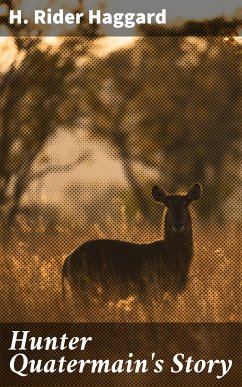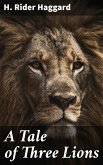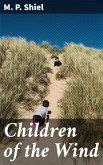H. Rider Haggard's 'Hunter Quatermain's Story' is a captivating adventure novel that follows the fearless hunter and explorer, Allan Quatermain, on an exhilarating journey through uncharted lands in Africa. The book is written in a vivid and descriptive style, evoking a sense of danger and excitement as Quatermain faces various challenges and encounters with wild animals and hostile tribes. Haggard's use of rich imagery and engaging storytelling makes this book a classic example of Victorian adventure literature. The novel also explores themes of courage, survival, and the clash of civilizations in a colonial setting. Haggard's attention to detail and his ability to transport readers to the heart of the African wilderness make 'Hunter Quatermain's Story' a thrilling and immersive read.
Dieser Download kann aus rechtlichen Gründen nur mit Rechnungsadresse in A, B, BG, CY, CZ, D, DK, EW, E, FIN, F, GR, H, IRL, I, LT, L, LR, M, NL, PL, P, R, S, SLO, SK ausgeliefert werden.








